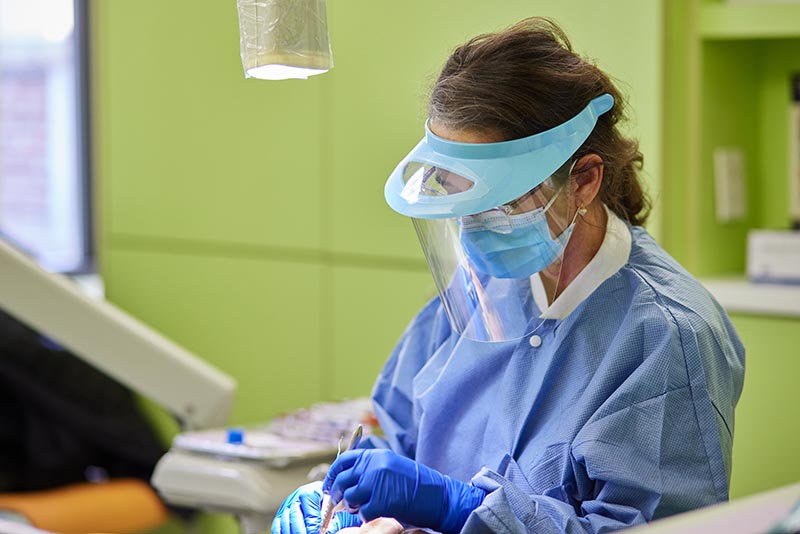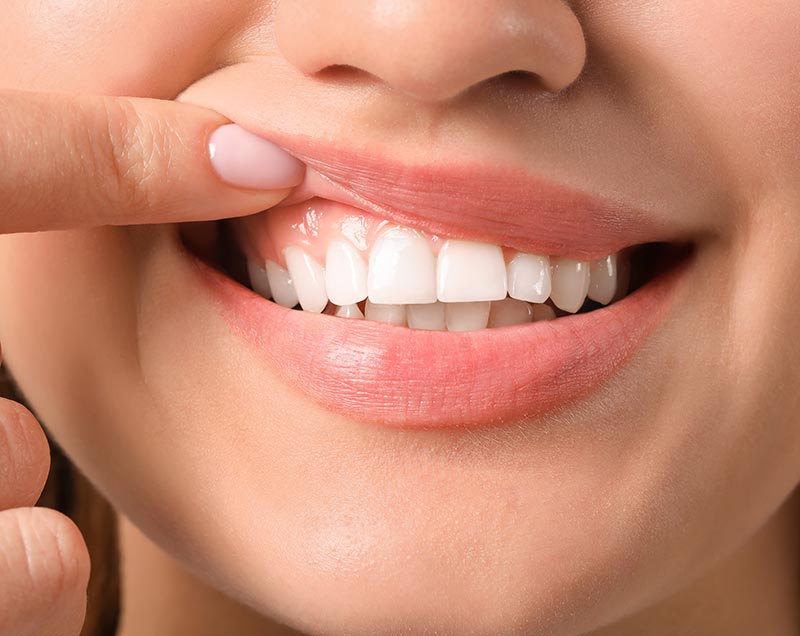Download The Ultimate Guide to Sustainable Dentistry eBook
How We Diagnose Periodontal Disease
That’s why at Dentistry For Health NY, we have made our innovative, non-surgical periodontic treatment as one of the cornerstones of our dental practice. Upon our patients’ initial oral exam, one of the first things we check for is the bacteria level of their oral environment with our instant microscopic analysis. If we find spirochete bacteria or other pathogens in plaque under their gums, that alerts us that a potentially serious periodontal condition is present, since that bacteria strain can go through the bloodstream and exacerbate serious health conditions.
Taking a plaque sample and looking under a microscope and salivary analysis for periodontal pathogens and your genetics, is critical to evaluating the patient’s status prior to treatment, and to monitor ongoing systemic and local treatment. Often, a patient’s mouth might look healthy with traditional dental analysis, while a microscope slide reveals an invasion of bacteria, white blood cells, amoeba, and other opportunistic organisms. An alarming 75% of American adults have some level of gum disease, and many don’t even suspect that they have it!

Unfortunately, most dentists do not use a microscope or salivary diagnostics and instead rely on traditional methods of assessing the periodontal health of the patient. This involves probing and measuring pocket depth. Anything greater than 3 millimeters of depth is usually an indication of a problem.
Another indication that most dentists consider as proof of periodontal disease is bleeding that appears when probing. But what this is really indicating, is capillary fragility. Although bleeding gums may be an indication of periodontal disease, it may also be present for other reasons, such as low levels of vitamin C, mercury fillings, hormonal imbalances, diet, or birth control pills and other prescription drugs.
The other most common way that periodontal disease is assessed, is by indication of bone loss on an x-ray. However, all these methods only reveal that bone loss has occurred in the past, but to know whether an infection that caused it is still present, a microscopic examination is indispensable.
Effective Gum Therapy
Instead of resorting to invasive gum surgery, at Dentistry For Health NY, we endeavor to help our patients arrest the pathological condition in the mouth that caused the problem.
You can live with a pocket and bone loss and not require gum surgery if the pathological condition is halted. Should we find that bacteria is present, our customized at-home treatment program and periodontal herbal formulas are very effective at eliminating the bacteria and helping your gums to return to normal, and prevent you from developing a serious related condition that could possibly occur in the near future. Every new patient that we see has an initial screening with microscopic analysis, regardless of whether or not they appear to have a periodontal problem. We cannot count the number of times that a patient’s mouth has seemingly looked healthy when on the slide a raging battle is brewing.
 Request Appointment
Request Appointment